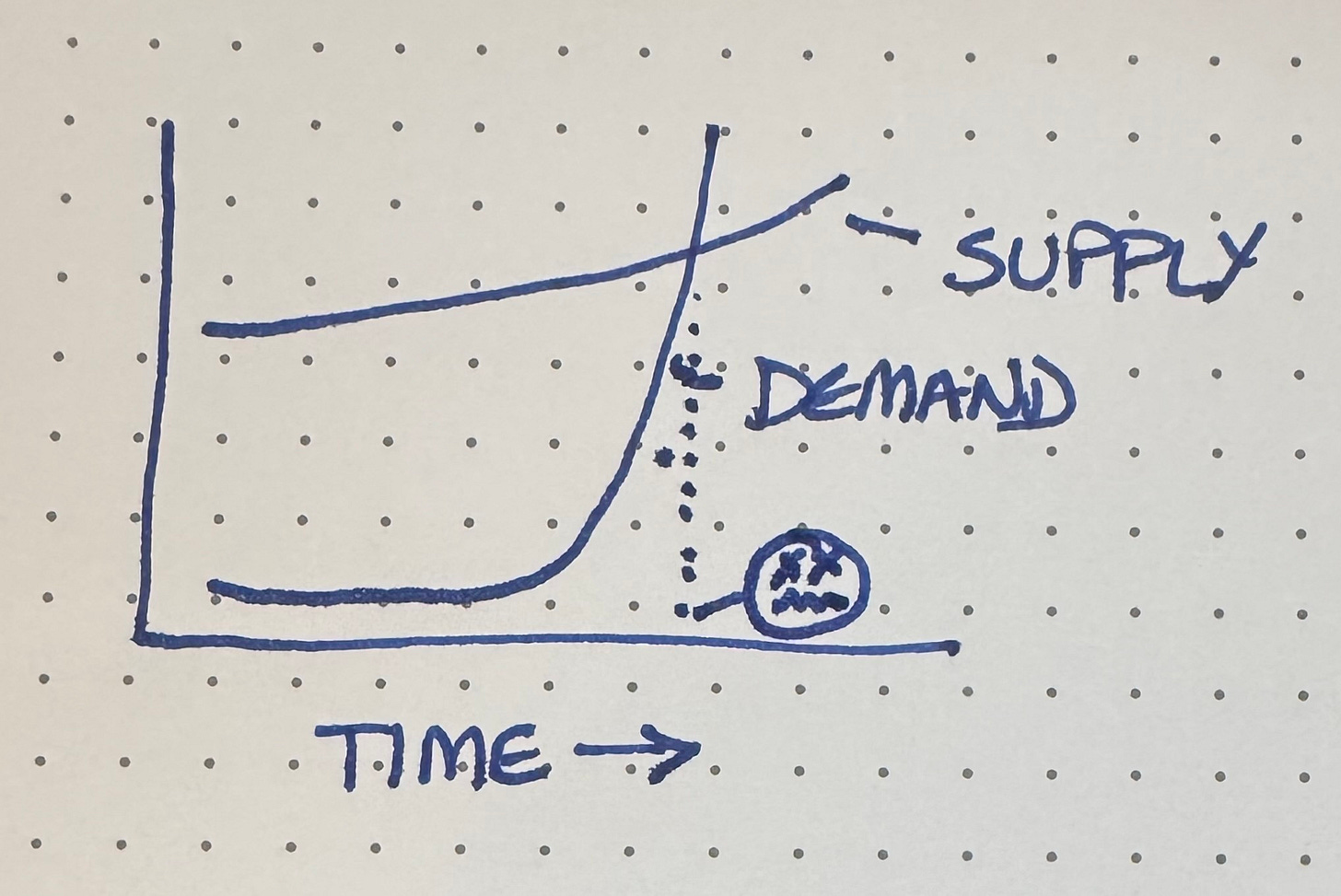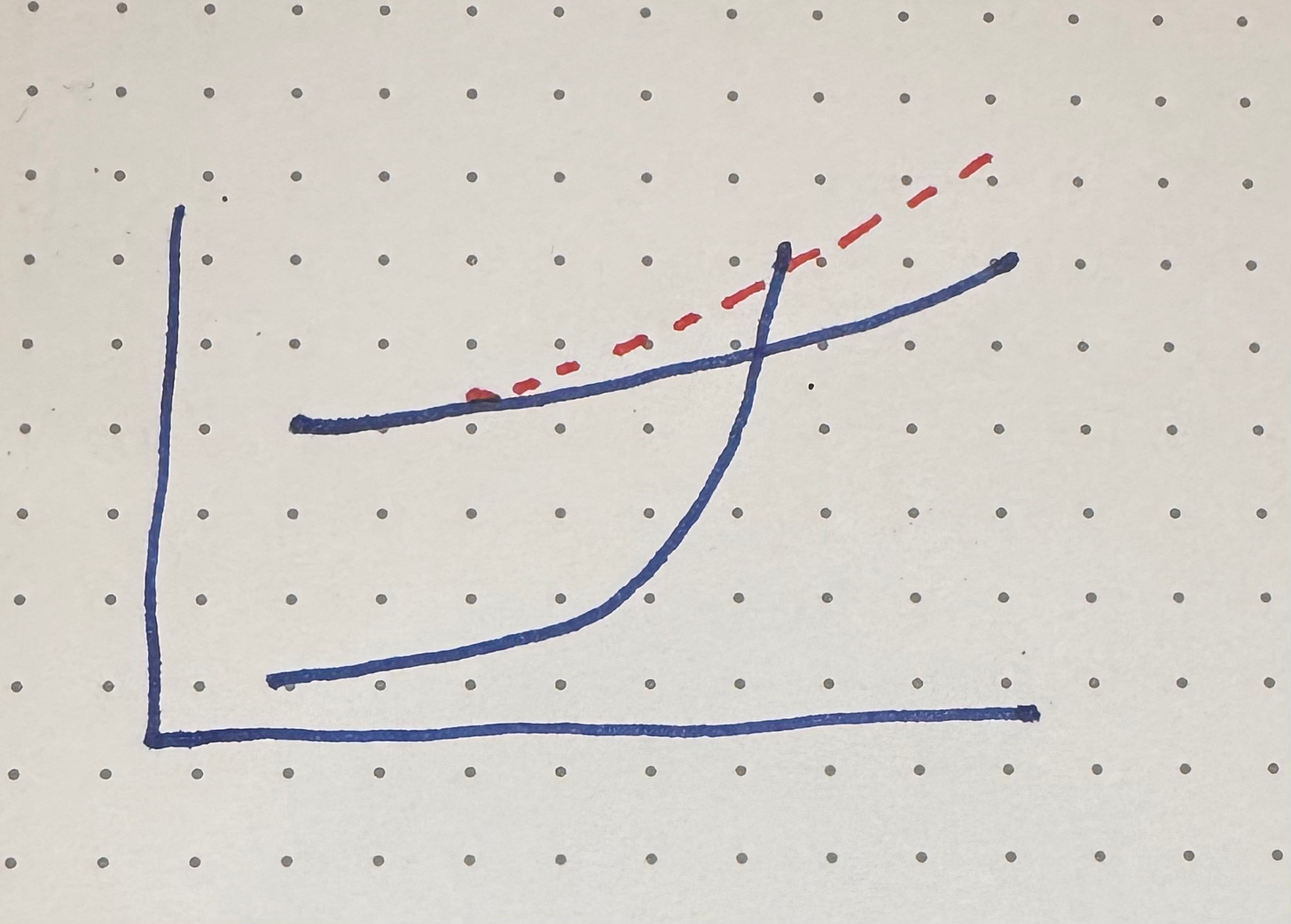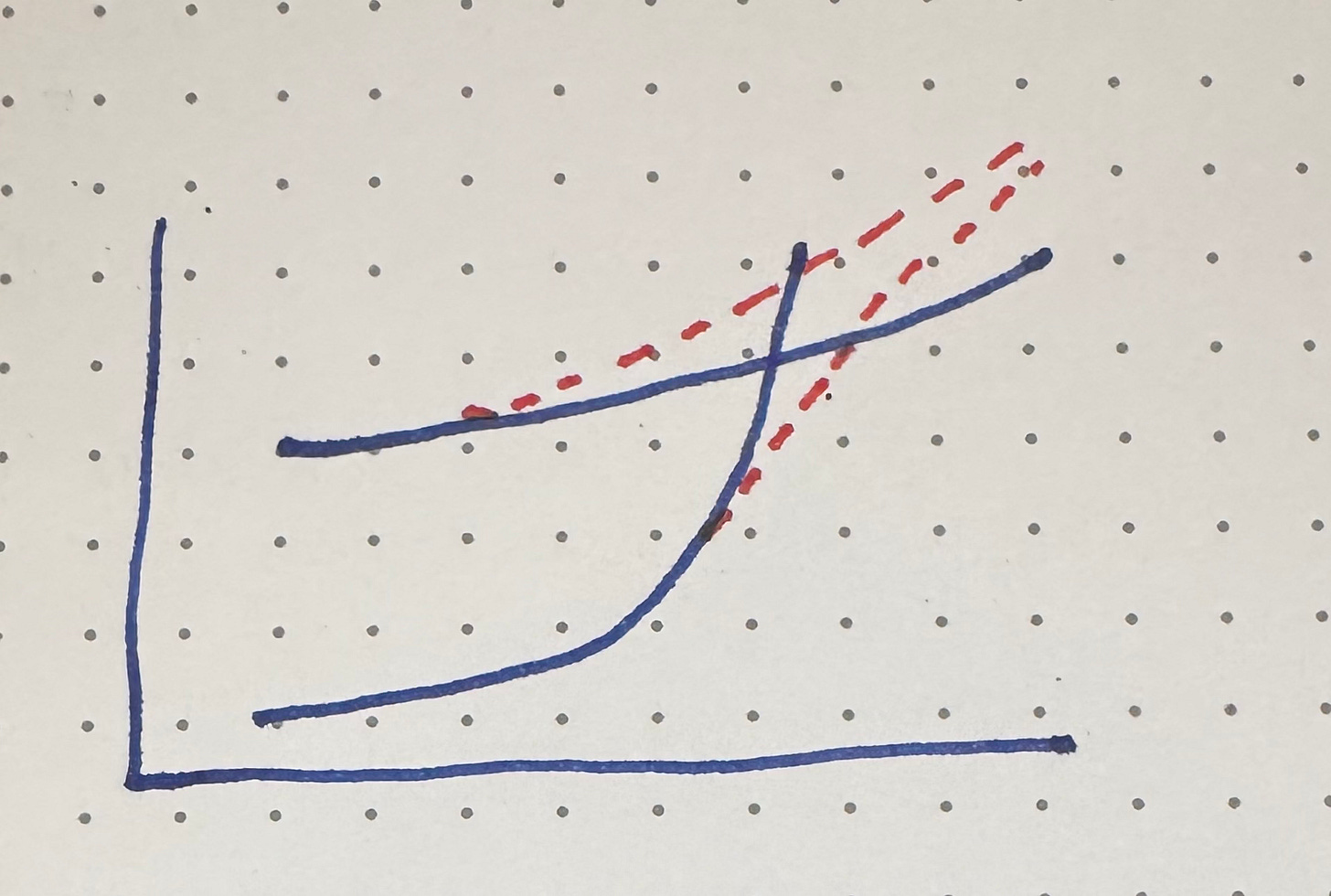Tokens: The New Oil
What happens when demand exceeds supply? A 3X: Explore/Expand/Extract Perspective
Last month, you were checking your bank balance every morning, calculating runway down to the day. "If we don't find product-market fit by July, we're dead."
This morning, you checked your OpenAI dashboard instead. You’re burning $50,000 a week in tokens. Your growth curve looks like a rocket launch. And you're going to hit your API limits in six days.
“We are confronted with insurmountable opportunities.” — Pogo
Whiplash
This is what success looks like. While you were exploring you optimized for cheap experiments. Less time, less money, more chances of survival. Now your hair is on fire. It’s time to shift gears.
Then last Tuesday happened. Some influencer posted about you. Your quiet little AI experiment went from 200 users to 20,000 users. Now it's doubling every three days.
Your cofounders are ecstatic. Your investors are throwing money at you. And you’re staring at the Graph of Death:
.Welcome to success. The only thing worse is failure.
Welcome to Your New Normal
This is your new job: seeing these kinds of cross-overs in time & doing just enough to dodge them. There’s good news:
You don’t have to solve these problems, just push them out into the indefinite future.
You have access to capital on a new scale to buy your way out of these problems.
There’s bad news:
If you don’t manage to push this problem out into the future, it will kill you.
Your instincts from the past 12 months are exactly wrong.
Once you push this problem into the future a new one will arise.
Remember being proud when you could get an answer for a hypothesis for one tenth the cost? When you had that elegant queueing system that ensured fair usage?
Forget all of it. Those were exploration habits. You're in expansion now. Different game, different rules, different ways to die.
Your new reality:
That sustainable architecture you planned? Too late. Usage patterns have shifted & it’s already obsolete.
That token optimization project? Too slow. Time is now money in a newly existential way.
That careful cost management? No longer relevant. Once you’re airborne, you’re suddenly immune to the length of the runway.
You have days, not months. Time to break some things.
The Only Graph That Matters
Let’s say you’re a supplier of tokens (the same logic works if you’re a consumer, but you’ll need to translate). Graph:
Supply: How many tokens you can consume & generate?
Demand: How many tokens your users are supplying & expecting?
Where they cross, your product dies. Not "degrades." Dies.
Remember—this is success. This is what you worked so hard for. So, now what do you do? Good news: you have 2 levers.
Kicking the Can Down the Road
Lever 1—bend supply up. Do what you need to do to survive. I heard stories from early Facebook of engineers going to Fry’s at lunch, buying servers, racking & stacking, & keeping the site up for one more day of peak usage. Efficient? No. Better than the alternative? Oh yes.
Lever 2—bend demand down.
Optimization is useful, if it can be achieved quickly (remember, time is now lots of money).
Delete expensive-but-not-critical features. I know this is hard. You love everything you built. Better to survive today & reimplement tomorrow.
Reduce users. Wait—you just spent a year praying for one user. Now you have thousands & you want to just drop them on the floor? Yep, again, it’s not a good option but it is the best option. Use invitation-only signups. A waiting list. Whatever to keep demand down below supply.
The Mental Shift That Saves You
In exploration, you were precious about everything. Every user mattered. Every feature was crafted. Every decision was reversible.
In expansion, you're at war. Wars aren't won by perfect soldiers with shiny boots. They're won by whoever doesn't run out of ammunition.
Your ammunition is tokens. Waste them, hoard them, steal them, borrow them—I don't care. Just don't run out.
Capital Isn't the Constraint Anymore
Here's the mind-bender: That runway you were watching? Meaningless now.
Investors smell blood in the water—the good kind. The "holy shit this is actually working" kind. They're begging to throw money at you. Take it. Take it all. You'll need it.
But money can't buy you tokens fast enough. API limits don't care about your Series A. Rate limits don't respect your growth rate. Your constraint shifted from cash to capacity, and that's a different problem to solve.
The Practical Survival Guide
This week:
Map every API limit you have. Not just the official ones—the real ones where things start breaking.
Split your infrastructure. Multiple accounts, multiple providers, multiple everything.
Implement the dumbest possible caching. Cache entire responses. Cache by user ID. Cache incorrectly. Just cache.
Turn off features. Start with the token-hungry ones only 5% of users touch.
Beg, borrow, and negotiate for higher limits. Today. Not after your "process review."
Next week:
Keep doing all of the above.
Start thinking about that one perfect solution you'll implement "when things calm down."
Laugh at your naivety. Things won't calm down.
Double down on the hacks that are working.
Next month:
Maybe—MAYBE—start building the real solution.
But probably you'll have hit the next bottleneck by then.
That's okay. That's what winning looks like.
The Permission Slip You Need
You're not a bad engineer for hardcoding API keys. You're not irresponsible for mixing providers with different capabilities. You're not short-sighted for building systems that will obviously break at 10x scale.
You're surviving expansion.
In six months, when you're in extraction, you'll rebuild all of this properly. You'll have beautiful token management, elegant fallback systems, and efficient prompt optimization. Your code will be clean, your architecture pristine.
But first, you have to live that long.
The Light at the End
I know it feels like you're building on quicksand. Like everything could collapse at any moment. Like you're betraying every engineering principle you hold dear.
You're right. You are.
And that's exactly what you should be doing.
Because in expansion, the only principle that matters is survival. Everything else—code quality, system design, cost optimization—is a luxury you can't afford.
Your investors understand this. Your users (the ones who stick around) understand this. The only person who doesn't understand this yet is you.
Welcome to expansion. It sucks. It's glorious. It's temporary.
Now stop reading and go bend those curves. You've got tokens to find and a product to keep alive.
Tomorrow's crisis is tomorrow's problem. Today, you survive.




Working for a small company, I remember my boss, when asked about the security of the licensing system of our product, saying : if people are trying to hack our system to use it, then we'll already have won. This is the mentality. You're building a product. It's a great product (supposedly). Get it out there. Get people excited. And if one day people are trying to use it for free, that's the taste of success. Some problems are good to have.
I'll leave a comment here about my vision for the future of programming: With the advent of AI, the market will be debugged, and the mechanistic developer who only knows how to press buttons will be dismissed from companies. Consider the mechanistic programmer as someone who rejects books, like math, for example. The bar for entering companies will be raised, and knowledge will ultimately need to be at least twice what it was before. I'm guessing that low-level programming will gain more traction on one end, while the increasingly higher level of abstraction of the art of programming increases exponentially on the other. However, there's something here that some people don't want to see because it hurts: the mathematical framework of new programmers will need to be much greater than before, as well as the logical capacity to mathematically interpret algorithms in order to optimize them once they're generated by AI.